A while ago we noticed in the window of Patisserie Valerie a poster advertising a meeting of The Philosophy Cafe, a local group where we are occasional members. The discussion theme for the evening was “The purpose of life is to avoid boredom”. Although we didn’t go to the talk it struck us as surprisingly profound and a very thought provoking idea.
Now, as most of us spend our lives inside deprived of our usual exterior social and cultural experience, we are perhaps forced to live an interior life and perhaps another kind of interior life also. And of course the cleaner can’t come. Turns out we’re filthy.
We take our outside walks not entirely without trepidation. We have rather quickly given up using the river path as it’s full of puffing joggers with imperial feet instead of metres for their social distancing. And the phone zombies stuck in their cyber worlds have no idea we are corporeal not virtual. And then there are quite a few walkers who make no effort at all to respect our implied cordon sanitaire.
Our first walk away from the congested river took us down to deepest Surbiton and along by the filter beds of Seething Wells. Disused now they were part of the major reform in the sanitation of London in the mid-nineteenth century. Up until then the existing infrastructure was deeply unsanitary - the water companies drew their water from the Thames while London’s sewage, rubbish and even dead animals were dumped into the Thames.
Drinking water was cloudy, full of debris and excrement. Cholera epidemics regularly broke out, killing thousands of people. It’s worth bearing in mind that until Dr John Snow, considered one of the founders of modern epidemiology, presented to Parliament in 1855 it was widely believed cholera was transmitted by air and not water. By the 1830s there was public, political and commercial demand for clean water. Finally the Metropolis Water Act of 1852 required all water companies to draw their water from above the tidal Thames.
The Lambeth Waterworks Company had anticipated this by building their innovative slow sand filtration water works at Seething Wells, which were completed and opened in 1852, the same year as the Act was passed.
Fast forward 150 years and the beds had become a nature reserve, home to 75 bird species and 11 bat species. But this is an area too large and valuable to leave ‘empty’. However the land owners have twice lost their application to build 64 residential homes on a floating pontoon, a 92 berth marina and lock gate, restaurant, landscaping and car parking.
Additionally their plan aims ‘to provide a publicly accessible nature reserve, riverside walk, heritage and education centre, flood storage and a river taxi stop.’ Personally we thought this was a suitable development but the locals do not and have successfully defended their position. Then 18 months ago without warning the entire area was denuded of all its vegetation, apparently not illegally. And so it sits 8 metres below road level, no use to man nor beast…
Close by and opposite we turn into St James’s Park a large estate of 230 neo-Georgian houses and 80+ apartments, or flats as we used to call them, built by St George over a few years starting in 2000. Judged harshly the houses could be dismissed as pastiche but the many squares and planting make it a success along with the lack of no through roads. Like so many buildings familiarity and time award them a patina of approval and given the 5 bedroom houses go for a couple of mil it’s clearly des-res.
It’s a definite pleasure walking through streets and places where we would not normally go and we enjoy feeling strangers in our own neighbourhood.
Postscript: Rather worryingly it turns out that Michael Winner, who surely must have been one of the world's least pleasant people is the author of the quote at the top of this. I tracked down the notes from the Philosophy Café meeting here: from which I draw this further thought-provoking thought "Nothing is more human than the readiness to kill and die in order to secure a meaning in life." John Gray (Black Mass p186)

 Kingston upon Thames, England, United Kingdom
Kingston upon Thames, England, United Kingdom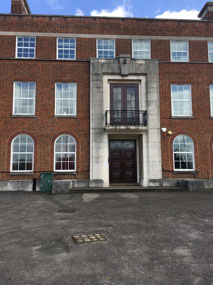
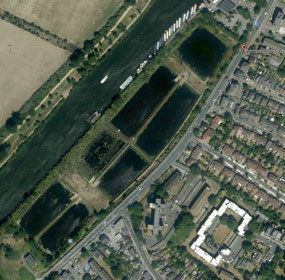
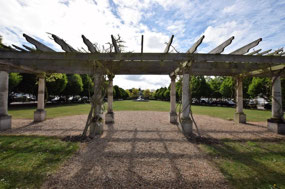

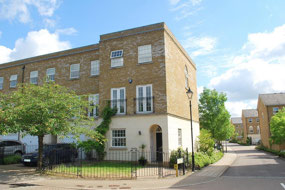
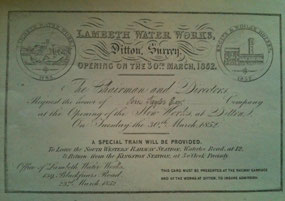

Roy Forey
2020-04-11
Love it what a great idea. I may have some walking assignments for you since my family lived in Kingston in the 19th century.
jeanrose49
2020-04-20
Come on then Roy - we need a new assignment. J X